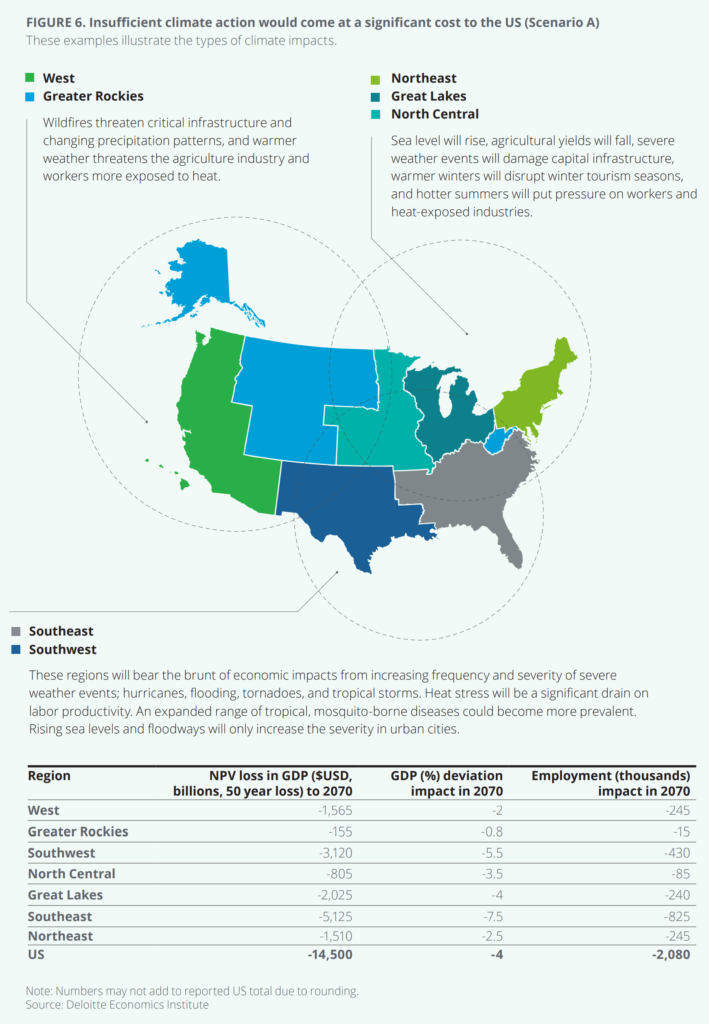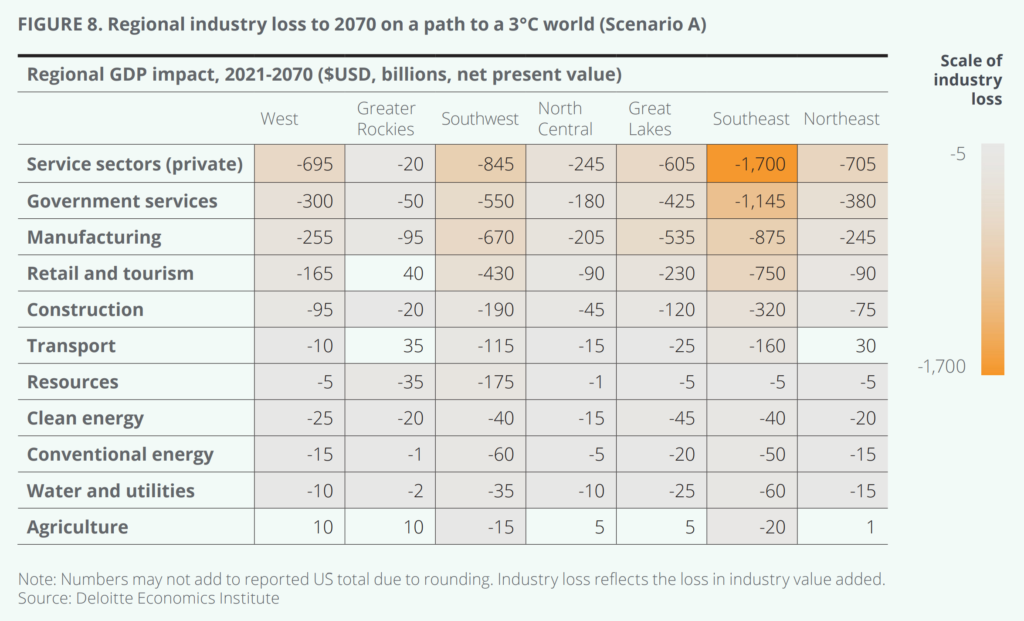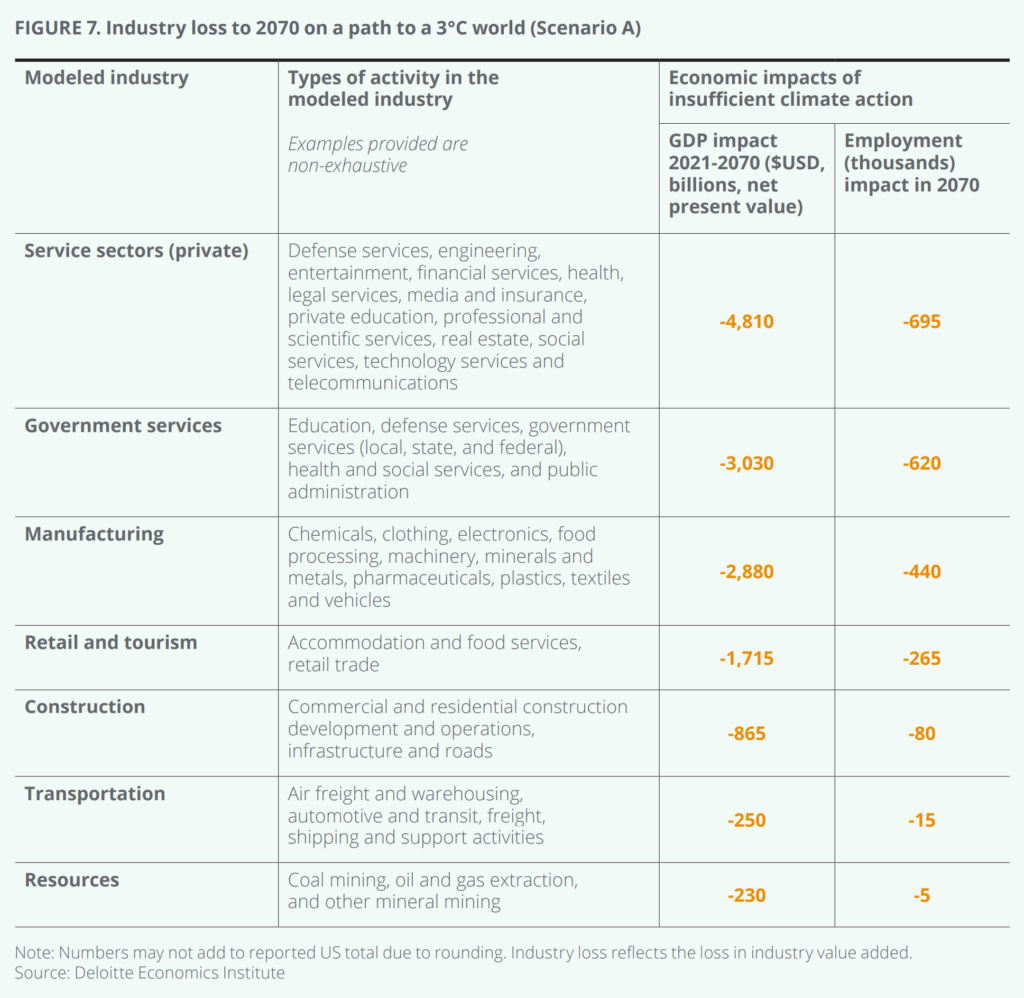The main purpose of this ongoing blog will be to track planetary extreme, or record temperatures related to climate change. Any reports I see of ETs will be listed below the main topic of the day. I’ll refer to extreme or record temperatures as ETs (not extraterrestrials).😉
Main Topic: Another Estimated Cost of Climate Inaction
Dear Diary. Every so often I see news stories or notes involving the high cost of climate inaction. Climate change for most of us is like a creeping vine attacking a tree. It’s not all of a sudden going to kill the tree, but slowly grows up the trunk, with its tentacles digging into bark in order to steal sap, gradually strangling the whole tree. To some people in the public, the vine grows at imperceptibly slow speed for one lifetime, but without pruning or some other intervention, it will kill the tree (or in our case the climate).
I saw this note yesterday from Dr. Jeff Masters that is climate change related but just involves a side effect of burning fossil fuel. If we transition our energy generation to renewables, we can kill two birds with one stone, preventing this horror:
Here is a Desdemona Despair piece, indicating the high cost of a slow transition toward a clean green future:
Climate change-induced losses in the U.S. could total $14.5 trillion by 2070 – “In a climate-damaged world of 2070, the U.S. could lose nearly 4 percent of GDP in that year alone”

Estimated economic impacts of unmitigated climate change on seven geographical regions in the United States. Over the next 50 years, climate change-induced economic losses in the U.S. could total approximately $14.5 trillion in present-value terms. Graphic: Deloitte
By Rachel Koning Beals
26 January 2022
(MarketWatch) – Definitive and deliberate climate action from Wall Street to Washington and beyond could deliver a $3 trillion gain to the U.S. economy over the next 50 years to 2070. But it’s the toll of inaction that would cost the nation nearly five times that amount, a leading business consultancy says.
A new report this week from the Deloitte Economics Institute shows that the U.S. could expand by $3 trillion if it rapidly decarbonizes, meaning becomes less-reliant on fossil fuels CL00 and instead advances the technology for expansive renewable energy TAN, over the next 50 years.
There will be a stinging period of economic transition, creating “winners” and “losers”, then a breakeven point, and finally a newly competitive economy, the researchers argue. This once-in-a-generation transformation could add nearly 1 million more jobs to the U.S. economy by 2070, according to the report, The Turning Point: A new economic climate in the United States.

“The report makes the case for another industrial revolution in the U.S — one built on low-emissions growth — to avoid significant losses from the climate crisis and to create a more dynamic, prosperous economy for the U.S.,” said Alicia Rose, deputy CEO for Deloitte U.S. “The analysis shows that the battle to slow climate change is not only an aspirational goal, but an economic imperative for the U.S.”
The other side of the ledger is eye-opening.
Over the past 50 years, the U.S. has suffered a total of $1.4 trillion in economic losses due to weather, climate and water hazards, and while pathways for the climate and economies are never linear, climate science and Deloitte’s analysis argue that an increase in global average temperatures could cost the U.S economy $14.5 trillion (in present-value terms) over the next 50 years.

If global warming reaches around 3°C toward the century’s end, Deloitte’s analysis indicates that economic damages would grow and compound, affecting every industry and region in the country. This would make it harder for people to live and work due to heat stress, rising sea levels, damaged infrastructure and reduced agricultural productivity. […]
Deloitte’s analysis shows the 50-year loss of $14.5 trillion would slice 4% from gross domestic product (GDP), the broadest measure of the economy. That means about $1.5 trillion in 2070 alone. And over the next 50 years, nearly 900,000 jobs could disappear each year due to climate damage. [more]
Here’s how painful the economic loss will be for the U.S. from unchecked climate change: Deloitte
Here are some “ET” reports from Saturday and Sunday:
Here is some more overseas climatology from January 2022:
Here is more climate and weather news from Sunday:
(As usual, this will be a fluid post in which more information gets added during the day as it crosses my radar, crediting all who have put it on-line. Items will be archived on this site for posterity. In most instances click on the pictures of each tweet to see each article. The most noteworthy items will be listed first.)
Now here are some of today’s articles and notes on the horrid COVID-19 pandemic:
(If you like these posts and my work please contribute via the PayPal widget, which has recently been added to this site. Thanks in advance for any support.)
Guy Walton “The Climate Guy”